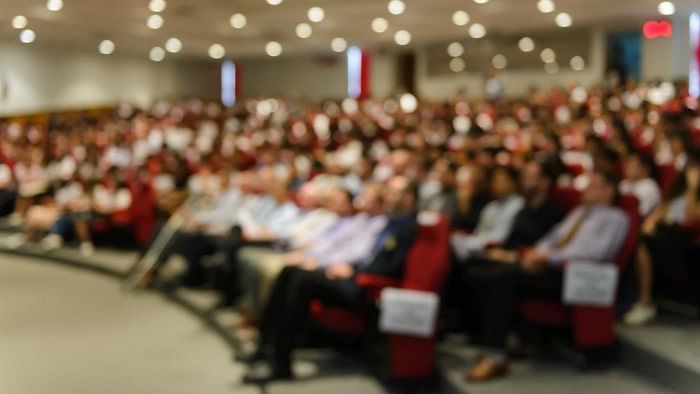
A two-day state-level workshop on strengthening the rehabilitation programme for identified manual scavengers kicked off at the Azad Bhavan in Bengaluru on Wednesday.
Over 220 manual scavengers attended the workshop organised by the Karnataka State Safai Karmachari Development Corporation in collaboration with the Talasamudayagala Adyayana Kendra and the Centre for the Study of Social Exclusion and Inclusive Policy at National Law School of India University (NLSIU).
The line of speakers explored the need to identify and rehabilitate manual scavengers in the state, create alternative employment opportunities, and provide better education and conducive environments for the children of manual scavengers, among other demands.
Dr Chandrashekhar, assistant professor, Talasamudaya Adyayana Kendra, NLSIU, highlighted the lack of data in government records, including the lack of a mention of the 93 people dying during manual scavenging work in the state since 2008. “This workshop is to bridge the gap between the community and the officials and create an action plan that can work as a model to the rest of the country,” he said.
Prof Babu Mathew, Centre for Labour Studies, NLSIU, said, “Despite being outlawed, manual scavenging exists only because of deep-rooted casteism in society. We must work towards eradicating the practice completely and provide alternative employment opportunities to all that are engaged in scavenging”.
He pushed for more residential schools for children of manual scavengers and public-private partnership (PPP) model to provide rehabilitation, besides suggesting the adoption of twin pits that can convert solid waste to manure.
Dr K Obalesha emphasised the need to use technology to rehabilitate manual scavengers and assured the crowd that a report with the community’s demands would be submitted to the government soon.
Dr E Venkataiah, advisor to the social welfare department, urged the crowd to send their children to private residential institutions for the solution to end manual scavenging laid in education. “The next generation shouldn’t get into manual scavenging. They should be able to access alternative professions. Everyone must think forward to get out of this profession,” he said.
Dr Rakesh Kumar, IAS, Commissioner, Social Welfare Department, noted the department’s efforts to instruct private and prestigious institutions to provide priority to the children of cleaners and manual scavengers. “We will try our best to bring into action the recommendations that are put forth through this workshop,” he assured the crowd.
The event also saw Rashi, a gold medallist in MA Social Science at the Bengaluru City University and the daughter of an identified manual scavenger Sujathamma, being felicitated for her achievement.
Dr Sony Pellissery, Director, Centre for the Study of Social Exclusion and Inclusive Policy, NLSIU, BWSSB Chief Engineer Suresh, BBMP Special Commissioner Reddy Shankar Babu, Rama, Manager, Karnataka State Safai Karamchari Development Corporation and other officials attended the inauguration.